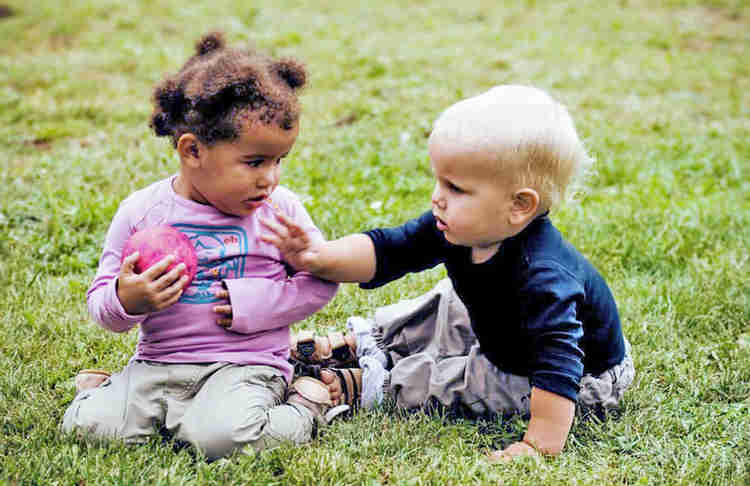The whole notion of sharing is an ultimately flawed concept…
Yes we want to encourage respect for others, giving to others, exchanging items/ideas, however we call this “turn-taking” rather than sharing.
What do I mean?
Well, imagine you’re sitting at a restaurant with a friend and you are writing down something really important in a diary. Someone walks up to your table and takes the pen you are writing with to use it…you look up startled and in disbelief. Your friend looks at you and states “Share it’s okay, they just want a turn it’s nice to share”. You think to yourself “What? I was just using that? They just took it from me!”
Alternatively, someone walks up to you and says “Excuse me you look really busy writing, but do you mind if I borrow your pen for a moment.” Your response would be absolutely different most likely “Yea sure here you go!”
It’s the same with children especially when we are at that playgroup, park, communal public space where children might approach them to take what they were engaged in. It’s really important to remember that children are focused in that moment and concentrating on a task at hand. We need to allow them the respect and time to complete that activity without interruptions. If we don’t, we are just compromising the learning that is taking place to ultimately satisfy our adult idea of sharing because it looks good to other people.
Discover practical, easy-to-implement strategies to gently navigate your child’s emotional outbursts, while maintaining your own sense of calm.
Another thing to note about sharing is that the concept itself is slightly difficult for young children to grasp until they are more of a social being, some studies finding it around 6-7 years old. So how do we encourage the fundamental principles of sharing without asking children to share? Turn-Taking!
When you see another child approach your child try these steps:
- Acknowledge they would like the toy: “Oh I can see you would love to have a turn, my child is just using it when they are finished you can have a turn”.
- Acknowledge their feelings: “It’s really hard to wait a turn” (if you see them getting impatient), “Would you like to do this or this while you wait” (Offer a choice).
- Let your child know the other child is waiting: “You didn’t want the boy to take your toy but when you are ready the boy would like to have a turn”.
- Allow the child time: Leave some time for your child to process everything and allow them to make the decision to hand it over when they are done.
Turn taking develops respect for others, teaches patience, kindness and consideration, everything we would love our children to have. So, don’t force your children to share, allow them to take turns and develop the fundamental ideas of sharing through this method.






